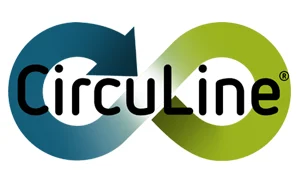
From retail and e-commerce through to agriculture, manufacturing and beyond, the modern business supply chain is under pressure to deliver sustainability alongside performance and commercial growth.
Driven both by soaring consumer demand for ‘greener’ brands, and tightening regulation around conserving the planet’s natural resources, the pressure is on for supply chains to operate more sustainably, but crucially without compromising on volume and speed.
As a leading name in durable transit packaging – the cornerstone of every competitive fast-paced supply chain – Schoeller Allibert prides itself on supporting its customers with solutions that turn the supply chain into a key pillar of sustainability strategy.
What is CircuLine®?
CircuLine is a range of products that forms part of the expansive Schoeller Allibert range. Providing the performance, versatility and long-term cost advantages that the business is known for, what marks CircuLine out is that it is comprised of at least 30% recycled polypropylene (PP) or high-density polyethylene (HDPE) plastic, up to a potential 100%.
The range uses robust material flows and a global supply network to ensure recyclate availability, quality and consistency throughout the CircuLine collection, whether supplying one site or multiple sites around the globe.
A number of Schoeller Allibert’s established products can be found in the CircuLine range, with more and more being added. The CircuLine collection comprises bulk rigid pallet containers, including food and agricultural grades, as well as stackable and foldable handheld containers.
A great example of CircuLine’s advantages in practice is Magnum Optimum. Suitable for a variety of applications, Magnum Optimum is the strongest foldable large container (FLC) on the market, with a double-wall structure offering more volume than other containers in its class.
Alongside a variety of customised setup options including lids and covers, Magnum Optimum can be created with SmartLink capability, which use IoT connectivity, transparency and data to turn every supply chain into a smart supply chain. Magnum Optimum can be built to CircuLine specification using recycled plastic, demonstrating that sustainability and performance can go hand in hand.
Why choose CircuLine?
The driving force behind the development and launch of CircuLine is the need to reduce reliance on virgin plastics, lighting the way towards long-term security for today’s rapid supply chains. Consequently, CircuLine products are designed to make optimal use of the earth’s natural resources and help to close the plastic loop, ultimately contributing to lower overall carbon output.
CircuLine is an outstanding choice for businesses aiming to make their supply chain work harder, while also forming part of a long-term corporate sustainability plan. Products in the CircuLine range go through the same rigorous quality testing as standard Schoeller Allibert products, guaranteeing strength, durability and a market-leading lifetime value.
As a market leader in transit packaging, Schoeller Allibert believes that closing the plastic loop, and reducing reliance on virgin plastics, is key to securing long-term success in today’s evolving commercial sectors.
The UK Plastic Packaging Tax
Of particular interest to businesses operating in the United Kingdom, CircuLine products manufactured from 30% recycled material or more, are exempt from the UK Plastic Packaging Tax.
Introduced in 2022, the tax charges business for all packaging manufactured in, or imported to, the UK, that does not contain at least 30% recycled material. With a rate charged at £200/ton, the UK Plastic Packaging Tax can attract potentially very high unwanted costs in a market that prizes volume.
Value is key, and as global industries work with ever tighter margins, investment in CircuLine enables businesses to combine high capacity and performance with sustainability, proving that these are not mutually exclusive.
To summarise, the CircuLine range helps businesses transition from linear waste streams to a model that is altogether more circular and goes beyond typical recycling channels.
Reusable plastic crates already bring strong sustainability benefits over single-use cardboard and wooden crates and they become even more advantageous as the number of rotations increases.
Data shows that when compared with 100% virgin plastic, designs made with 60% recycled material and 40% virgin plastic, manufactured using sustainable energy, the carbon footprint is more than halved. When the recycled material content increases to 97%, the CO2 output is just 20% that of virgin plastic.